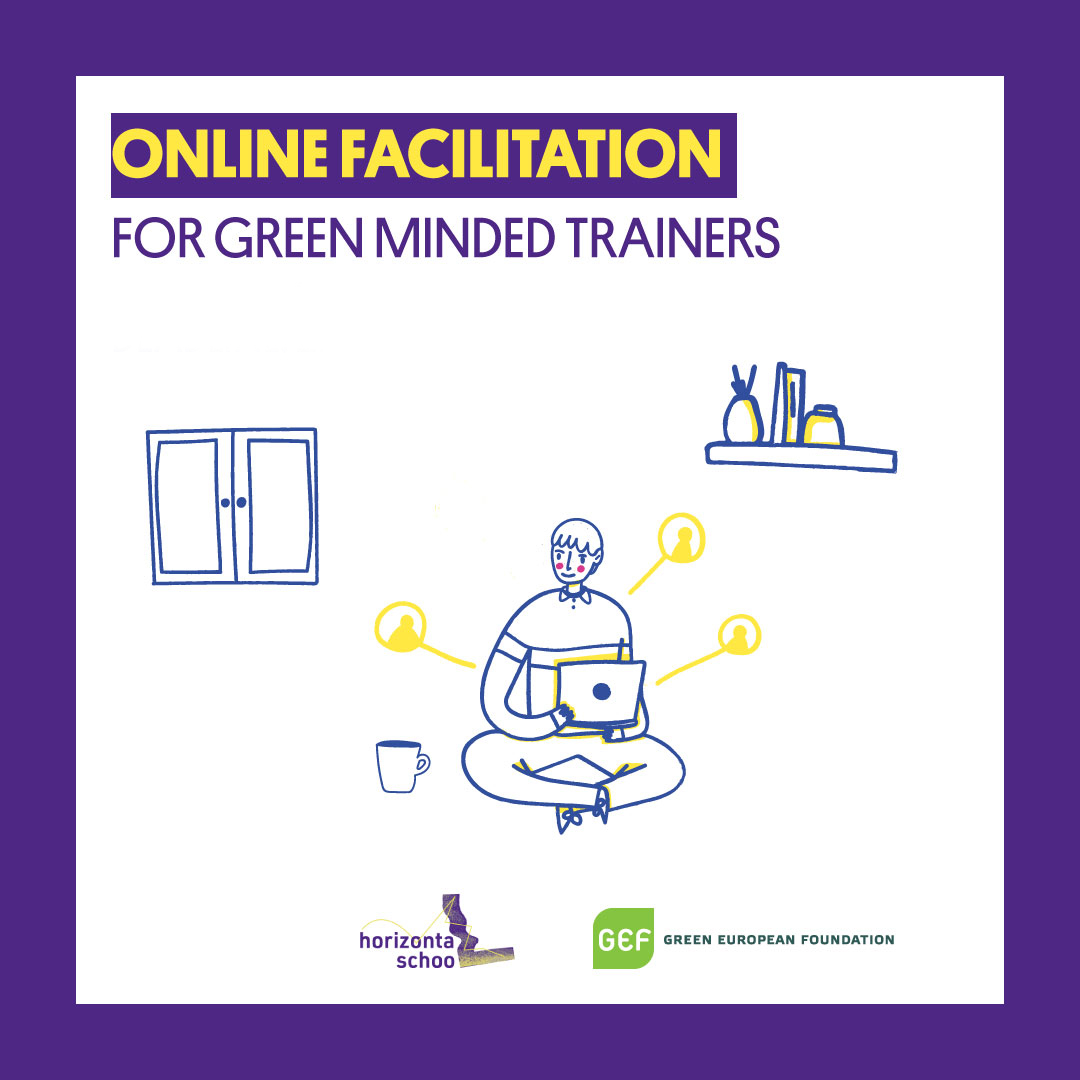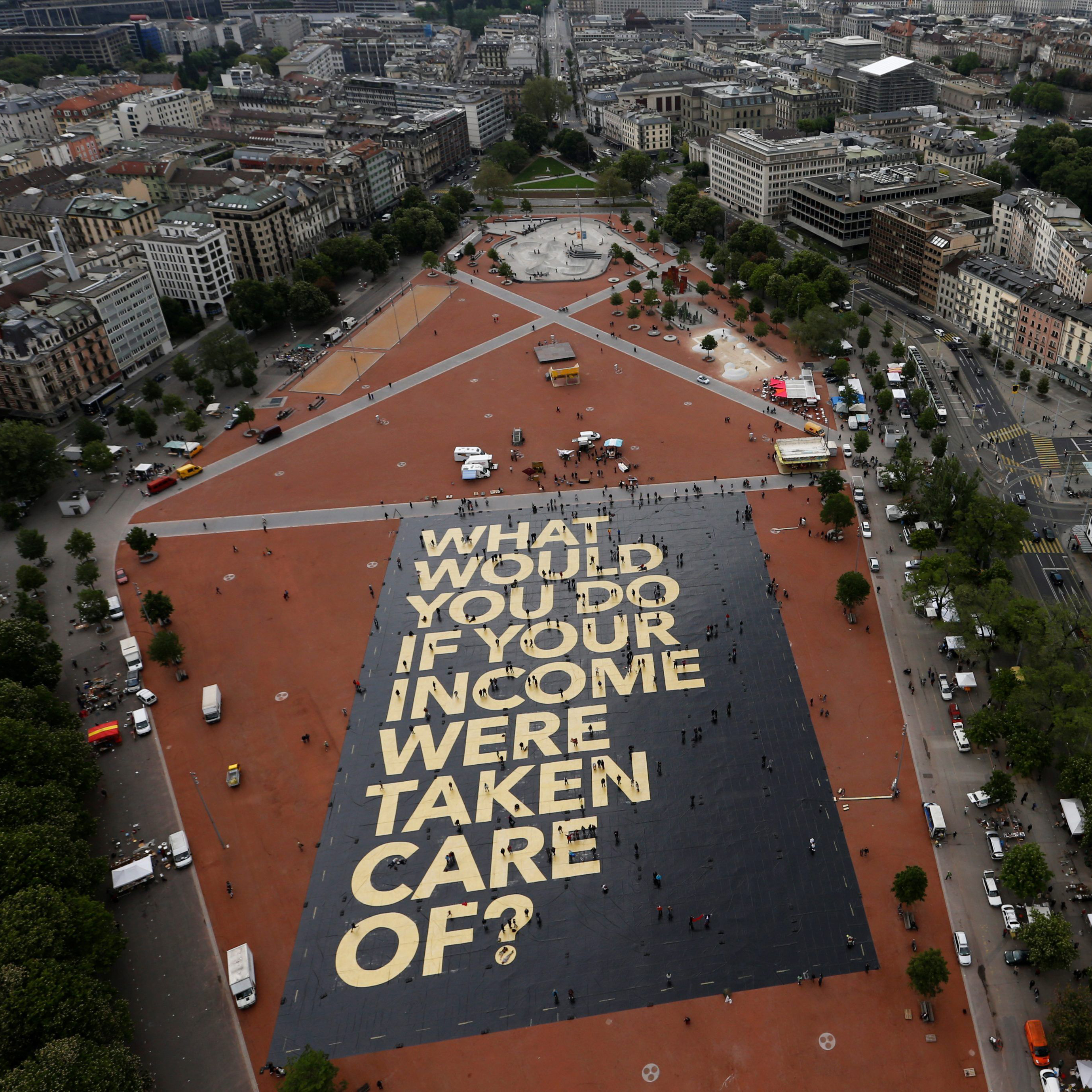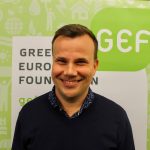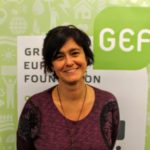
About the Event:
The Green European Foundation in cooperation with horizontal school, with the financial support of the European Parliament to the Green European Foundation, is organising the “Online Facilitation for Green Minded Trainers” on 18, 23, 25 and 28 September 2020.
Context:
Online trainings and online events have been gaining popularity in the recent years due to their relative accessibility, convenience, sustainability, and easier admission to a variety of expertise from all over the world. With teleworking becoming the new norm, many event and training organisers find themselves in the position of having to transfer their working methods online thereby shedding light on the new opportunities for digital and hybrid collaborations.
These opportunities also enable us, green organisations, to reach further, to strengthen our collaboration across countries, and to solidify our work once an event has ended. For sustainability-driven organisations, being compelled to invest in digital infrastructures has also opened up the space for less polluting, resource-consuming work.
In this context, the Green European Foundation in cooperation with horizontal school, is organising this training for facilitators and event moderators working on green topics .
Practicalities:
When: from 14h-17h CET on the following days:
- Friday 18.09
- Wednesday 23.09
- Friday 25.09
- Monday 28.09
Where: Online platform to be decided
Language: English
WHAT WE COVER:
- an orientation to online learning
- how to design and facilitate inclusive and participatory online workshops
- how to deal with technical elements, background and obstacles
- how to avoid online fatigue & passiveness
- how to reflect and evaluate on the sustainabillity of online events
- a toolbox of profound online tools and methods
- peer-to-peer exchange
- networking with other green-minded facilitators
TRAINERS
SEBASTIAN WEHRSIG, a trainer of horizontal school, is passionate about socio-ecological transformation, people and nature. He works on-site and online as a facilitator on education for sustainable development, international co-creation and citizenship education. Currently, he fosters sustainable development, climate actions and socio-ecological transformation at Villa Fohrde, an educational house in Brandenburg, Germany.
MARISCHA WEISER, a co-creator and trainer at horizontal school, is passionate about building communities, enabling co-creation, developing and applying methods to create social change in our societies. She is a coordinator, community builder and facilitator at MitOst, working in the field of culture and citizenship education. Currently, she focuses on program design, methods for capacity building of civil society actors as well as discovering the potential of online learning.
For questions and more information, please contact mariana.batista@gef.eu and/or horizontalschool@mitost.org
**This training course is brought to you by the Green European Foundation and horizontal school, with the financial support of the European Parliament to the Green European Foundation.





 Ville Ylikahri, GEF Board Member, Secretary General in the
Ville Ylikahri, GEF Board Member, Secretary General in the  Susanne Rieger, GEF Co-President, responsible for European issues and European relations in the Catalan Green foundation
Susanne Rieger, GEF Co-President, responsible for European issues and European relations in the Catalan Green foundation 